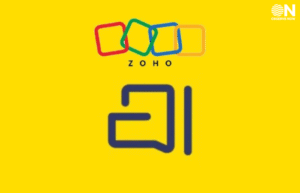Zoho’s Survey Highlights India’s Digital Transformation Leadership but Stresses Cybersecurity Gaps

Chennai-based global technology firm Zoho has unveiled its latest global study, the “Workplace Digital Transformation Survey 2025,” which underscores India’s leadership in digital workplace transformation while emphasizing critical gaps in cybersecurity preparedness. The survey, conducted through Zoho Workplace, the company’s enterprise email and collaboration suite, revealed that India’s digital transformation (DX) maturity score of 64.6% surpasses both developed nations and the global average of 62.3%.
India’s transformation journey has been fueled by widespread adoption of digital tools and processes. According to the survey, 71% of Indian employees operate at advanced DX maturity levels (level 3 and above), significantly higher than the global average of 61%. This success is attributed to the proactive involvement of employees in digital transformation initiatives, leading to noticeable improvements in workflows and efficiency. Despite this progress, cybersecurity readiness remains a concern, with only 37% of Indian organizations providing cybersecurity training and 33% enforcing secure remote work guidelines.
The survey highlighted India’s strong momentum in AI adoption, with organizations excelling in areas like automated content creation (44%), communication (52%), workflow automation (39%), and predictive analytics (33%). These advancements reflect India’s focus on leveraging AI for efficiency and collaboration. However, the study also revealed a reliance on “shadow applications”—unapproved tools used by employees for file sharing, communication, and documentation—which poses significant security and compliance challenges.
India also leads globally in advanced authentication measures, with 63% of organizations adopting tools like multi-factor authentication, compared to the global average of 49%. Additionally, 33% of Indian organizations use password management tools, and 39% implement role-based access controls to enhance data security. Despite these strengths, the survey found that only 17% of Indian workplaces utilize advanced security alert systems for suspicious emails, leaving significant room for improvement.
Employee satisfaction in India is the highest globally at 49%, demonstrating a strong correlation between DX maturity and workplace experience. Organizations that fully overhauled their tools reported an average DX maturity score of 66.7 and a 64% positive work experience. In contrast, those that made minimal updates had lower scores (~61%) and reported mixed experiences, highlighting the importance of investing in modern digital tools.
Transitioning to higher DX maturity levels will require significant investments. Moving from Level 3 (structured integration) to Level 4 (optimization) is estimated to cost ₹80,000–₹1,70,000 per employee annually and could take over a decade to achieve. Zoho emphasized the need for government bodies and enterprises to rethink digital strategies and address cybersecurity gaps. According to Rakeeb Rafeek, Market Strategy Lead, Zoho Workplace, leadership must prioritize collaboration tools, AI-powered analytics, and secure communication platforms to overcome current challenges and prepare for the future.
As India continues its digital transformation journey, the survey highlights both the country’s potential to lead globally and the urgent need to address cybersecurity gaps and shadow application risks. The findings emphasize the importance of balancing innovation with robust security measures to ensure sustainable progress in the evolving digital landscape.
















